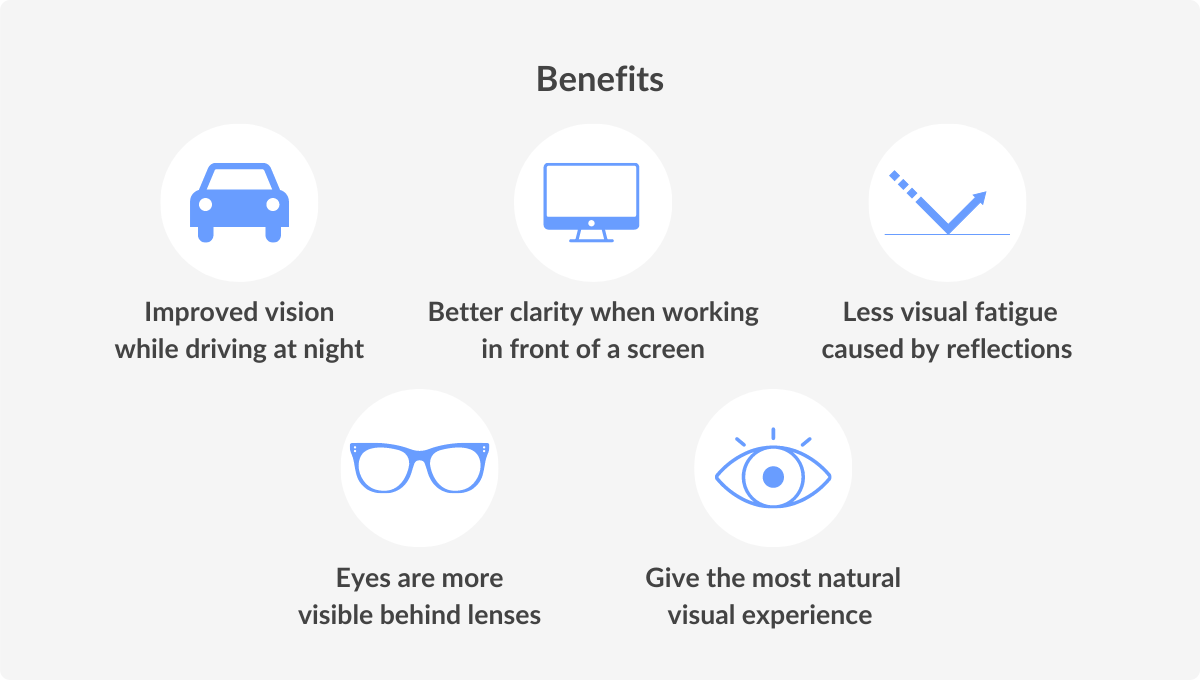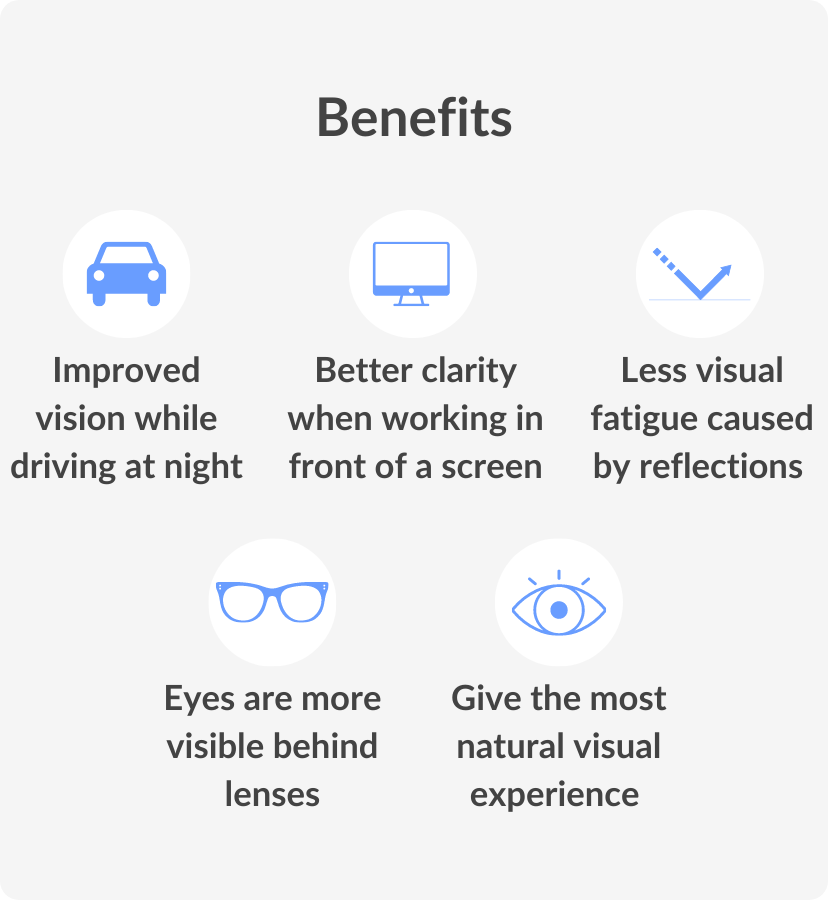Anti-Glare Glasses
What are anti-glare glasses? | What does anti-glare do on glasses? | Anti-glare glasses benefits | Disadvantages of anti-glare glasses | Do I need anti-glare on my glasses? | Can you add anti-glare to glasses after purchase? | Are anti-glare and blue light glasses the same | How to care for glasses with anti-glare coating

Did you know that standard lenses transmit around 91% of light to the eye? The rest is lost due to surface reflections. Anti-glare glasses help solve that problem. If you didn’t know the role played by reflection when wearing prescription glasses and are not sure whether or not to get anti-glare glasses, this article will help you understand better.
What are anti-glare glasses?
Lens coatings are significant because they are vital in providing durable and long-lasting lenses for your eyeglasses. Unfortunately, not everyone knows the different types of lens coatings you can choose from; or worse, some don’t even know such protective layers exist.
Lens coatings enhance the lens performance of your glasses whether you wear single-vision, bifocal, or progressive lenses.
One of the lens coatings you can choose from is anti-glare coatings, also called anti-reflective coating. These lenses are provided with a microscopic multilayered coating that eliminates glare and reflections from the back and front of your eyeglass lenses. As a result, it helps with clearer vision.
What does anti-glare do on glasses?
Thanks to the coating, anti-glare glasses reduce the light reflecting off the lenses, resulting in more light passing through and having more clarity. Not only will you be able to see better, but the glasses will also help with surface reflections and give you greater visual performance.
Anti-glare glasses benefits
There are more benefits to anti-reflective glasses than you might think; here are some of the advantages of choosing anti-glare coatings:
- Improved vision while driving at night, which results in being more aware and in control while driving.
- Better clarity when working in front of a screen.
- Less visual fatigue caused by reflections.
- Your eyes are more visible, which helps with eye contact and looking better in photos.
- If you wear glasses all day every day, anti-reflective coating gives the most natural visual experience and places less strain on your eyes.
Disadvantages of anti-glare glasses
There are also a few disadvantages when getting anti-glare glasses, including the increased need for cleaning. After getting your pair of anti-glare glasses, you might want to clean them more often because anti-glare glasses highlight dirt or dust.
This also happens with scratches, which means glasses must be handled with extra care. To learn more on how to properly take care of your glasses, check out our tutorial below.


DID YOU KNOW?
Anti-glare coatings cannot be added to glasses after purchase, they must be applied beforehand.
Do I need anti-glare on my glasses?
Anti-glare coating is not mandatory, but it is advised as it enhances the overall performance of your glasses. Not only will you have clearer vision, but you will also look better and struggle less while doing your everyday activities.
Can you add anti-glare to glasses after purchase?
No, anti-glare cannot be added to your lenses after the purchase. If you need to decide whether or not to add anti-glare coatings to your glasses because of the price, remember there are many affordable online options that let you add an anti-glare coating to your lenses without breaking the bank.
Are anti-glare and blue light glasses the same
No, anti-glare and blue light glasses are not the same, as they are two types of coatings and are designed for different purposes. Anti-glare coatings are designed to increase the amount of light passing through the lenses, while blue light glasses are designed to block the blue light coming off screens.
Blue light block can be added as an additional coating to your lenses when purchasing your glasses.
How to care for glasses with anti-glare coating
As mentioned above, anti-glare glasses might need to be handled with more care than regular glasses. To make sure your glasses are always cared for properly, remember to:
- Store the glasses in their protective case when you’re not wearing them.
- Always use a microfiber cloth during the cleaning process.
- You also might want to use an optical spray.
Remember to avoid cleaning your glasses with shirts or chemical cleaners, as this might be damaging to your glasses. If you want to read more about lens coatings, we have an informative article right here.








































